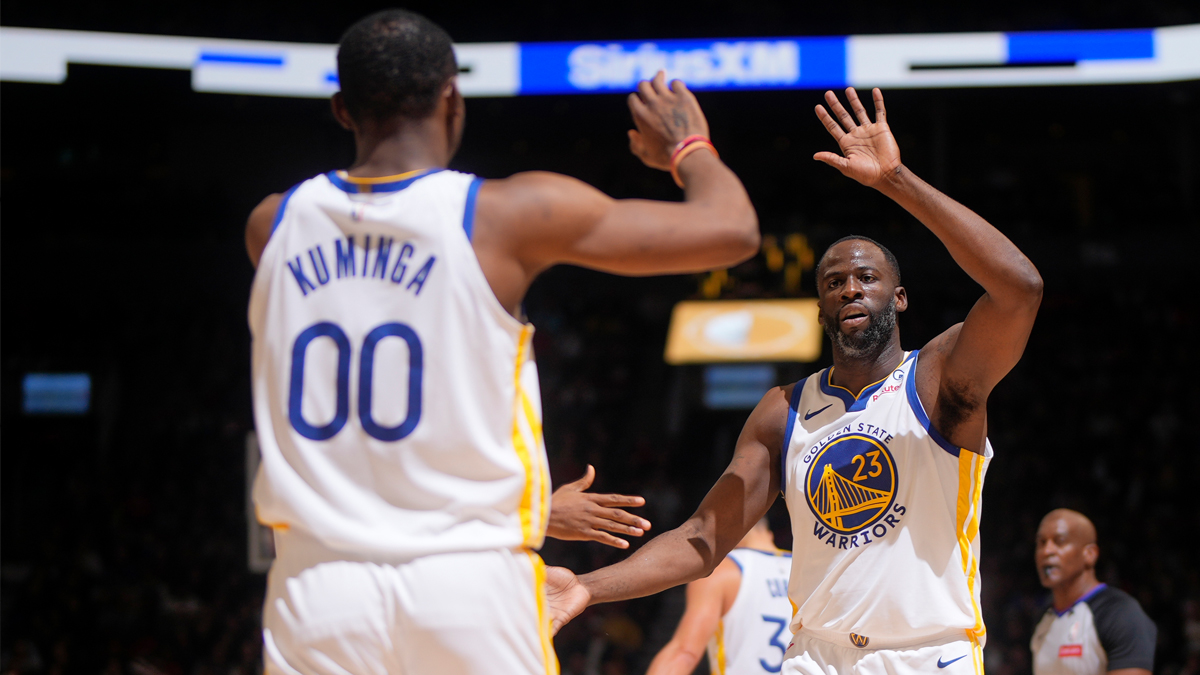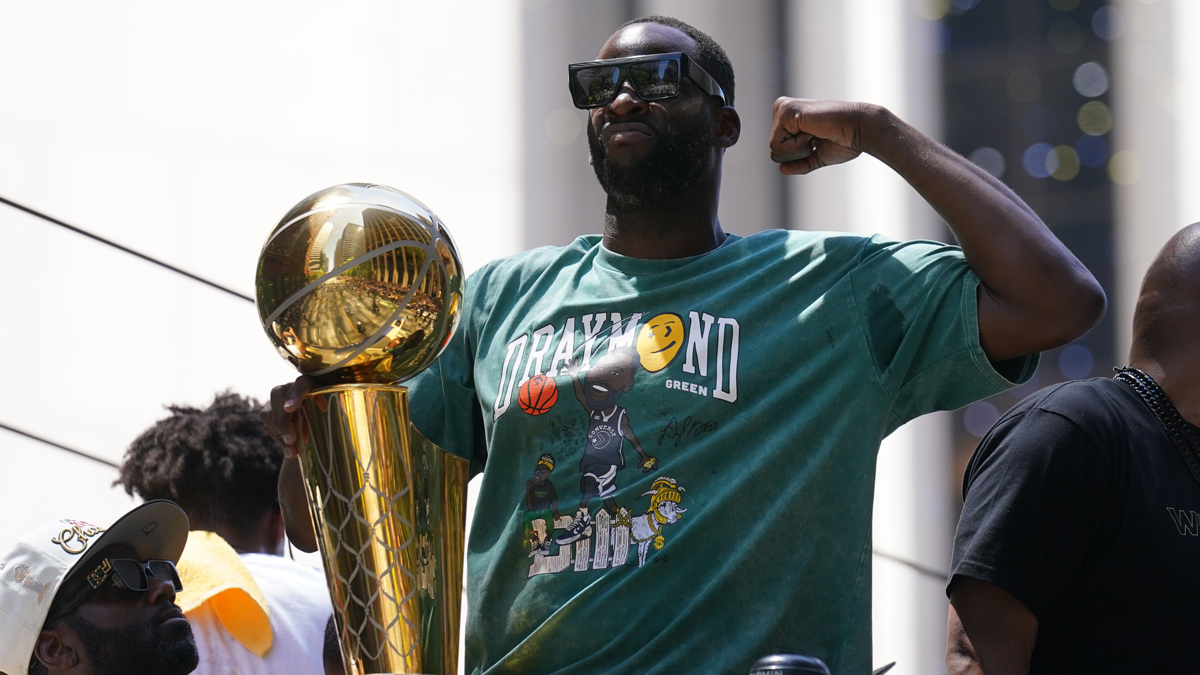When Gregg Popovich was ejected in the second quarter of a Dec. 30 game against the Los Angeles Lakers, he turned to Becky Hammon and said, “You got ’em."
Hammon was the San Antonio Spurs assistant coach who had scouted the Lakers, so it made sense for her to take over. But the moment was bigger than that. It was history.
Hammon was the first woman to be a head coach in an NBA regular-season game.
Stay in the game with the latest updates on your beloved Bay Area and California sports teams! Sign up here for our All Access Daily newsletter.
With Hammon and the Spurs visiting the Warriors on Wednesday night, what’s the best way to reflect on history? I asked a collection of women coaches to recall how they felt when Hammon, in her seventh season on the Spurs' bench, took the clipboard from Pop.
Lindsey Harding, Sacramento Kings assistant coach/player development coach: “I hate to say this ... it was a special moment, but I wasn’t surprised. She was ready. She’s been ready.”
Charmin Smith, Cal women’s basketball head coach: “I remember getting the alert on my phone and just being like, ‘Well, this is special!’ And my first thought was, she's definitely going to be a head coach in the NBA someday. And someday soon, I think. She's just been moving right along, and has gotten the respect that she deserves from so many.
“I think she's with the right organization, and the right leader in Gregg Popovich, that he understands that gender doesn't matter. Basketball is basketball. I appreciate his ability to be so forward-thinking and help move this along.”
Golden State Warriors
Lindsay Gottlieb, Cleveland Cavaliers assistant coach: "I just got chills again. We were on a road trip, and I start scrolling and I see all these images ... the one that became kind of iconic with Becky in the middle of the huddle. I really can't overstate like how it moved me. Seeing it was really, really powerful. [Cavaliers general manager] Koby [Altman] texted me a really nice text that morning saying how important he thought it was. And I said to him, ‘I'm not even sure that the guys in our coaching staff could possibly fathom what it felt like for me to see it.’ "
She elaborated why.
“You know, I work with a lot of really talented assistant coaches, and I just hear them talking, which is totally normal, ‘Hey, you know, when I have my own team one day,’ or ‘Hey, these are my goals,’ and they should be talking like that. I just don't believe that I can talk like that yet. You know what I mean? It doesn't feel natural, and I've coached in the Final Four [at Cal] and I've coached as a head coach for 11 years. But until you see someone do it, it's really hard to believe those words can come out of your mouth.”
Natalie Nakase, Agua Caliente Clippers assistant coach: “It needs to be acknowledged. It’s not an everyday thing. She was prepared. And I think what it does show is that the NBA is the most progressive league, I think, among all sports. Pop was willing to give her the game. And that was it -- she was ready.
“What’s also is nice is [NBA commissioner] Adam Silver isn't afraid to really push for equality. And I think that's important, not just with coaches, but with the front office, even referees. So, this is a big thing. It should be acknowledged. Even highlighted."
Teresa Weatherspoon, New Orleans Pelicans assistant coach and five-year New York Liberty teammate of Hammon’s: “First of all, she's more than a teammate. She was our baby sister, so we're truly family and super proud of her. We spoke about it the last time we saw each other and the opportunity. ... I just felt like [that] was going to eventually come for her -- not knowing it was going to come like that and so soon, but she was ready. She was ready. I mean, zero fear."
Weatherspoon reminded me that “no fear” has been Hammon’s story since she was in high school in South Dakota. She was passed over by big-time universities, and got her chance at Colorado State when a recruiter -- in the gym to see other players -- noticed that she made the so-called stars look silly. Out of college, Hammon turned a Liberty training-camp invite into a 16-year WNBA career.
“She's put in the work from Day 1, of people not believing in her, because of her size, not being drafted. She put in the work. She believed in her mission, she believed in herself. The entire battle is just believing yourself.”
Self-belief is something women can control. But men have to believe in them, too. The gate-keepers in NBA front offices control access to jobs.
Smith: “This is just a societal flaw, in which we think that women aren't capable of doing certain things that men are, and it's old and it's tired, and it's time to move on from it.”
Smith noted there’s an assumption about who is qualified to lead.
“I think it's a bigger issue of people just being more open to things that aren't necessarily how we've done things traditionally. Why are there so many men coaching women's basketball? You know a man can get a women's job, and they don't have to have a gold medal or anything. You know any of that type of résumé can coach women.”
Harding noticed the difference in résumés as well.
“The majority of coaches in the NBA have not played at the level that Becky and I have played, right? They have not done that, and no one really talks about that. They just talked about you being a woman, but understand at the highest level, playing in the Olympics, playing in All-Star games, that's a tough thing to do. That experience is what you're bringing to a coaching staff.”
Harding was the 2007 Naismith College Player of the Year at Duke. She spent nine seasons in the WNBA, plus international play and her time as an Olympian during the 2016 Rio Games. Her résumé is sparkling.
Harding brings up the example of Erik Spoelstra’s career -- not to criticize him personally but to compare paths that are available. He went to the University of Portland, never played in the NBA and worked his way up through the video department to become the Miami Heat’s head coach.
“Coach Spoelstra and Miami ... that was his path. I look forward to the day that a young woman who did not play at the level we did, and started in the video room, can build her way out, because they're obviously allowing those opportunities for men without playing backgrounds. Let's get the young women in here who love basketball, who can learn it by watching film, which is how some of them have become great coaches, or become great in management in the front office. We can learn, too."
Nakase believes her résumé simply is a piece of paper once she steps on the court. Who is qualified to lead is instantly obvious.
“Any coach or player will know right away within five minutes of having a conversation. Do you know what you're talking about? Are you passionate about the sport? How can you help me?
“The best advice one of the assistant coaches told me was players can smell the bulls--t. So, if you don't tell them something that can help their game, don’t say anything at all. They'll give you five minutes."
This was the moment I let the cursor blink on my computer screen for a while. I paused. Stories like this can add to the BS. It’s a tricky tightrope to acknowledge history without being reductive: Woman Does Thing! Wow!
Of course Hammon coached. Of course she was ready.
This story is debuting in January, and extended cuts of these interviews will be released in March, which is Women’s Empowerment Month. Shouldn’t these discussions happen year-round?
I asked women coaches what it means when a woman makes history. Shouldn’t I ask men what it means?
I considered the wisdom and emotion in these coaches’ quotes. I considered their résumés, some of them firsts in their own right. Harding was the NBA’s first Black female pro scout, for the Philadelphia 76ers. Gottlieb was the first woman to leap to the NBA directly from the NCAA coaching ranks. Nakase was the first woman head coach in Japan’s men’s professional league.
I looked at Weatherspoon, a Naismith Hall of Famer, an Olympic gold medalist and a two-time WNBA Defensive Player of the Year.
It took me weeks to organize a discussion with basketball minds this extraordinary. Was I wasting their time asking them woman questions?
Weatherspoon: “Absolutely not. OK? Not at all, because it's valuable information that we must share because we all have to grow. You have to know that it's bigger than you, and you got to try to knock the door down for others to enter. We need some help. The gatekeepers have to let you in.”
I asked the coaches, how often do you feel aware of your gender at work?
Smith: “I think all the time. And for me, it's not just gender. It’s race, obviously. There's not a day that I don't walk around as a Black female, and that's just how it is.”
Harding: “Simple things, as in, you know, I had to tell everyone [there’s a] meeting at 11:00 on the dot. And I'm walking in the locker room. Please be dressed before I walk into the locker room! I have to make an announcement that I'm coming in.”
Weatherspoon: “This is the honest truth. I don't even think about it. I have zero thought about it. I just know that it's basketball. I've played the game at a very high level.”
Gottlieb: “I don't think my goal is to be just like the men in everything I do and be treated exactly the same. I think the goal is that they recognize that I am different. My experiences in life are different. My experiences in coaching are a little bit different, but I'm no less capable. And I feel like that's the goal, right? You want to feel seen. I’m the only female that I see most days.”
The only coach I reached out to and who declined an interview was Hammon. From what I’ve heard, she dislikes woman questions. It’s basketball. She’s a coach, not a female coach. I understand the distinction.
History sees it this way: Hammon became the NBA’s first full-time female assistant coach in 2014. Each time she gets closer to becoming the NBA’s first female head coach -- her widely predicted fate -- the spotlight intensifies. The First cannot dim the spotlight. It becomes their halo, no matter how much they’re annoyed by the shine.
Weatherspoon said Hammon will speak when she’s ready.
“This is something she's worked for. This is a dream. This is her desire, and her mission, and for her, this is basketball.
"She will eventually share her feelings. And trust me, it has to be an emotional thing for her as well, because a lot of times, there's a load that lies upon your shoulders. She's well aware that it’s bigger than her. There just comes a time where it could be someone that you need to touch, or some young lady who needs to hear it, or who doesn't believe that this could happen. Because it could definitely help a life, and that's the most important thing. I know she believes in being impactful in the lives of other people.”


